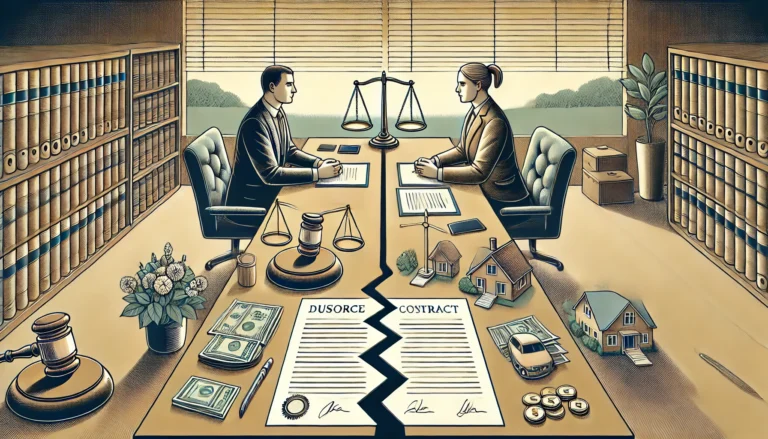Divorce settlements can be complex and emotionally draining. Avoiding common mistakes can help ensure a fair outcome and reduce stress. Here are some common pitfalls to avoid during the divorce settlement process:
1. Failing to Gather Complete Financial Information
One of the most critical steps in a divorce settlement is having a complete understanding of both parties’ financial situations. Failing to gather accurate information on income, assets, debts, and expenses can lead to an unfair division of property and support arrangements. Ensure you have all the necessary documentation, including bank statements, tax returns, and investment accounts.
2. Letting Emotions Drive Decisions
Divorce is inherently emotional, but allowing feelings of anger, resentment, or revenge to dictate your decisions can be detrimental. Making decisions based on emotions rather than logic can result in agreements that are not in your best interest. It’s essential to remain focused on practical outcomes and consider the long-term implications of your choices.
3. Not Considering the Tax Implications
Divorce settlements can have significant tax consequences that many people overlook. For example, how assets are divided or how spousal support is structured can impact your tax liabilities. Consult with a financial advisor or tax professional to understand how the settlement will affect your taxes and to make decisions that minimize your tax burden.
4. Overlooking Hidden Assets or Debts
In some cases, one spouse may attempt to hide assets or fail to disclose certain debts. This can lead to an uneven settlement that disadvantages the other party. Be diligent in reviewing financial records and consider hiring a forensic accountant if you suspect hidden assets. A thorough review can help ensure that all assets and liabilities are accurately accounted for.
5. Failing to Plan for the Future
A common mistake is focusing solely on immediate needs rather than planning for the future. Consider how the settlement will impact your financial stability years down the road, including retirement savings, insurance needs, and long-term expenses. Creating a financial plan that accounts for future goals can help you achieve stability post-divorce.
6. Agreeing to Unfavorable Terms Out of Fear
Fear of prolonged legal battles or the desire to move on quickly can lead some individuals to agree to unfavorable settlement terms. While it’s natural to want closure, it’s important not to sacrifice your financial security or rights in the process. Take the time to carefully review any agreements and do not feel pressured to sign something you are uncomfortable with.
7. Neglecting to Update Legal Documents
After the divorce is finalized, it’s crucial to update all legal documents, including your will, power of attorney, and beneficiary designations on insurance policies and retirement accounts. Failing to update these documents can lead to unintended consequences, such as your ex-spouse receiving benefits that were not intended for them.
8. Ignoring Health Insurance Coverage
Health insurance is another critical aspect that can be overlooked during divorce settlements. If you were covered under your spouse’s health insurance, make sure you have a plan in place for your coverage after the divorce. COBRA or marketplace plans are options, but they can be costly, so it’s important to account for this in your financial planning.
9. Not Considering the Impact on Children
The welfare of children should be a priority in any divorce settlement. Avoid using children as leverage or making decisions that may negatively impact their well-being. Work toward a custody and support agreement that prioritizes their needs and maintains stability in their lives.
10. Failing to Seek Professional Guidance
Attempting to handle a divorce settlement without professional guidance can lead to costly mistakes. A knowledgeable divorce attorney, financial advisor, and mediator can provide valuable insights and help navigate the complexities of the process. Professional support ensures that your rights are protected and that the settlement is fair and comprehensive.
Conclusion
Navigating a divorce settlement can be challenging, but avoiding common mistakes can help you achieve a fair and equitable outcome. By staying informed, seeking professional advice, and focusing on practical decisions, you can navigate the settlement process with confidence and secure your financial future.

